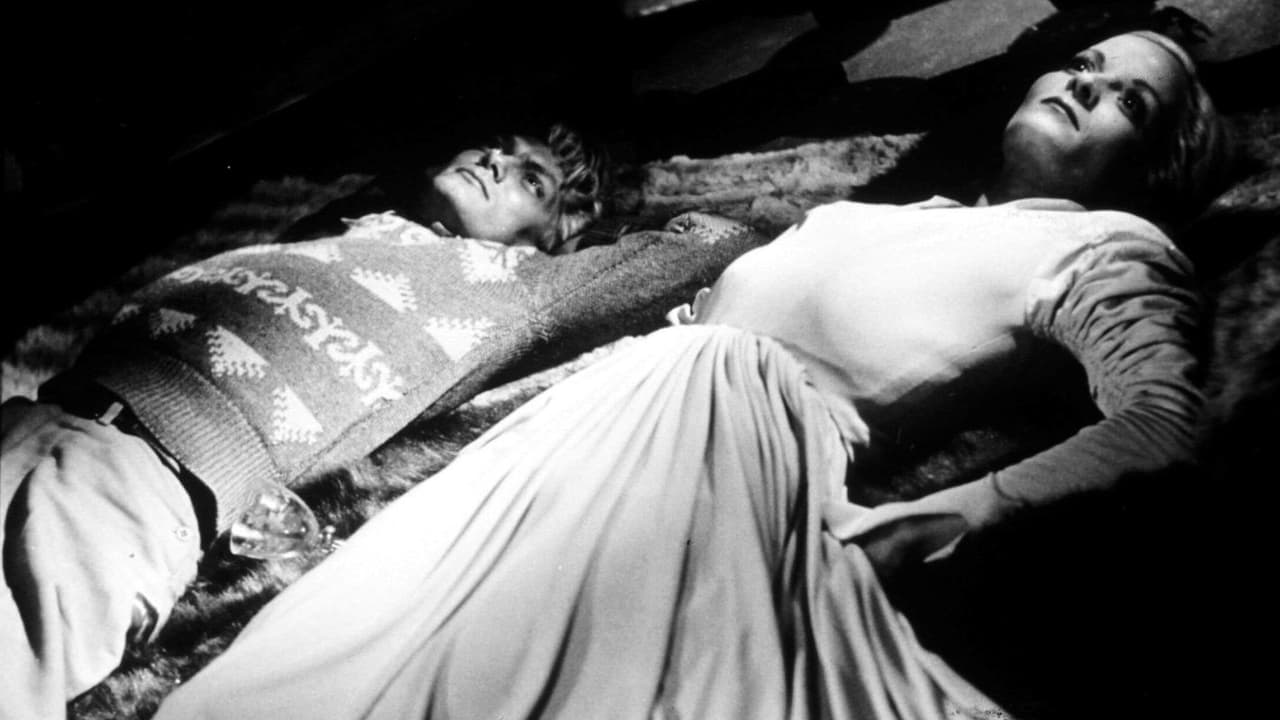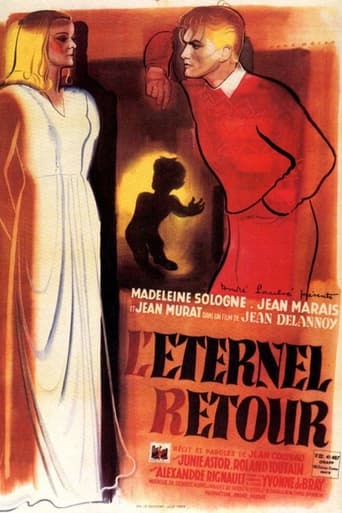

It's a mild crowd pleaser for people who are exhausted by blockbusters.
... View MoreYes, absolutely, there is fun to be had, as well as many, many things to go boom, all amid an atmospheric urban jungle.
... View MoreThere's a more than satisfactory amount of boom-boom in the movie's trim running time.
... View MoreThis is a small, humorous movie in some ways, but it has a huge heart. What a nice experience.
... View MoreI see the Nazi references, but there are subtle subliminal messages being sent to the French people who were under the jackboot of Nazi oppression. It was not a proud time for them. Remember that during the Middle Ages, Vikings invaded France from the North. The men from the North who became the Normans finally assimilated nicely with the people living in northern France. Men who were expert sailors learned farming and the language of the "French". Re-telling the Tristan story always seemed to me to be a way to reach the soul of the French. It's a way to remind them of the time of the brave knight who comes to the rescue of his lady. The blondness of Patrice and Nathalie could be a reference to the Normans. They are both orphans of the sea and the death scene with both of them positioned perfectly on a boat(linked eternally)with the skies parting to bring them up to heaven is very reminiscent of the French epic poem "Chanson de Roland". It also reminds me of a dead Viking warrior being cast out to sea on his burning boat. A film to be enjoyed on many levels and a way to appease the Aryan loving Nazis while resonating with the proud history of the French.
... View MoreThe first Cocteau/Delannoy collaboration.That would not be the only one ("la Princesse de Clèves,1961).Like "les Visiteurs du Soir" ,"l'Eternel Retour" was the typical Occupation movie : a way to keep reality away .But whereas Carné's work was hailed as an attack against Hitler (Jules Berry's devil was supposed to represent the Fuhrer),Cocteau-Delannoy's fans was sometimes accused of germanophilia.But with hindsight,it's talking nonsense:even if Patrice was a fair-haired Tristan,Jean Marais joined the army and he fought against Nazi Germany.One thing for sure: Jean Marais made his sweater fashionable,and Madeleine Sologne did the same with her hairdo.This is the "Tristan and Isolde" legend transposed to the contemporary era.Tristan becomes Patrice,Isolde becomes Nathalie (one of the two Nathalie because,like in the story,there are two of them),King Mark simply turns into "Oncle Marc".The dwarf,Frossin,is also featured and is played by Piéral who also appeared in "La Princesse de Clèves" and many historical films.This is really a good directing job by Jean Delannoy,too often slagged off by the Young Turks of the New Wavelet.The castle and the misty banks of the lake are haunting.And Jean Marais is ideally cast as Patrice/Tristan.If you are interested in the FRench cinema,this is essential viewing.
... View MoreThis movie was written by Jean Cocteau and it's pretty obvious due to the odd plot twists, romantic tone and mythological roots to the plot. Just a few years later, he was to BOTH write and direct Beauty and the Beast and Orpheus. These two are better films than The Eternal Return, though this movie is still worth watching--particularly as it shows and evolution of Cocteau's ideas. So, this movie is sort of like and unpolished version of these two later movies in many ways--particularly Orpheus. Absent from this film are the odd camera tricks but the story elements are all here.The love between the two main characters is best described as a combination of the tragic stories of Orpheus and Eurydice along with Romeo and Juliet, but I have recently been informed that the story is ACTUALLY a reworking of the story of Tristan and Isolde. Thrown in for good measure are a malevolent dwarf, the dwarf's detestable parents and a lot of cool plot twists.However, there were a few things that just didn't work out well in the movie. First, when it was obvious that the crazed dwarf had tried to kill the lovers by offering them what he thought was poison, nothing was done to punish him or place him in an institute for the criminally insane. This is pretty prudent considering what the dwarf does LATER in the story! Second, I hate movies that feature ladies fainting. Unless there is a blow to the head or they've gone without eating for a very extended period of time, people DON'T just faint. This is such a stupid cliché and I'm a little surprised that anyone as innovative and intelligent as Cocteau would resort to this device.Other than that, it's a nice film.FYI--An IMPORTANT warning: The video I watched was from The International Collection from Nelson Entertainment. If there are any OTHER companies that make this video, try them first!!!! The captioning was absolutely horrible!! Often, much of the dialog was not subtitled or very long statements were boiled down to one or two words!!! They showed very little respect for the integrity of the movie!
... View MoreI thought this film was genius. For this implicit portrayal of Nazi politics to be made in Vichy France is astounding. The sinister Achille is one of the most shockingly real characters I've ever seen. If you speak French, see this movie (do NOT rely on the subtitling...it's shoddy).
... View More